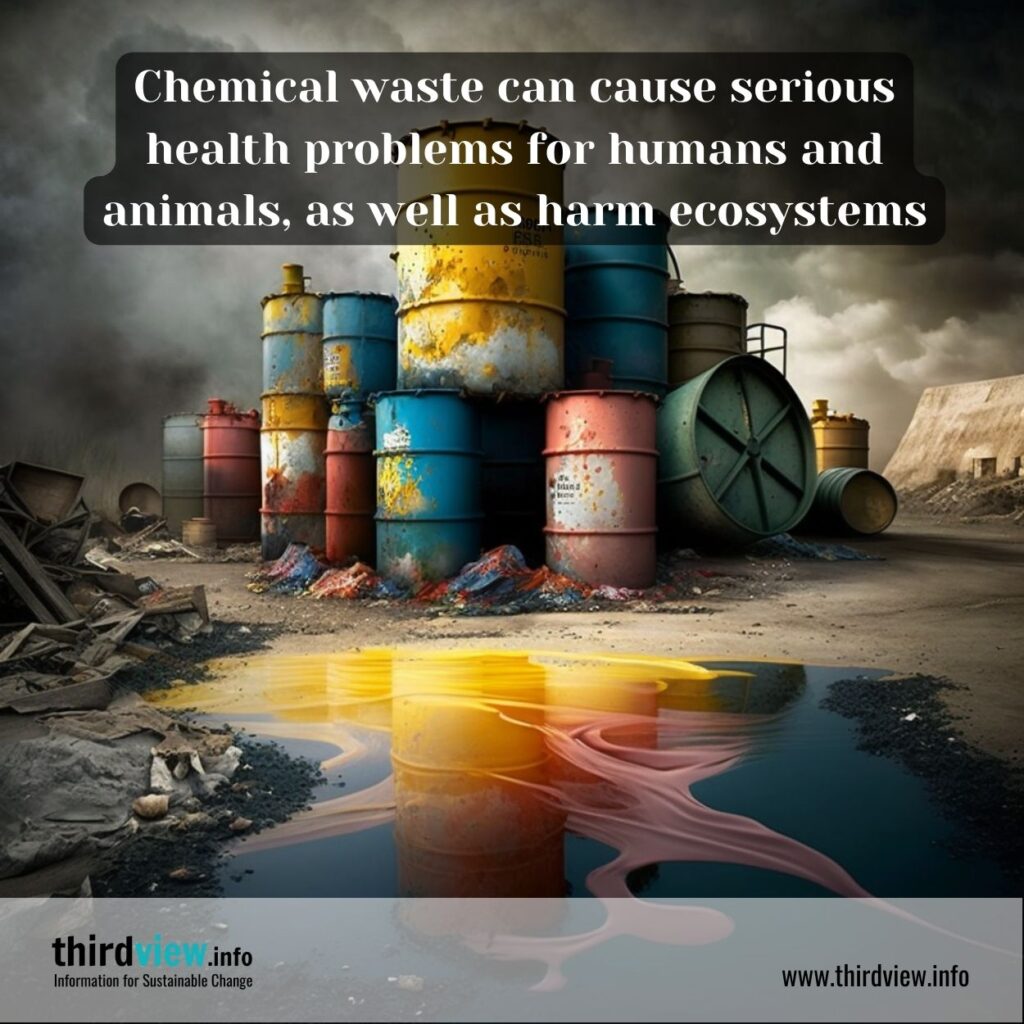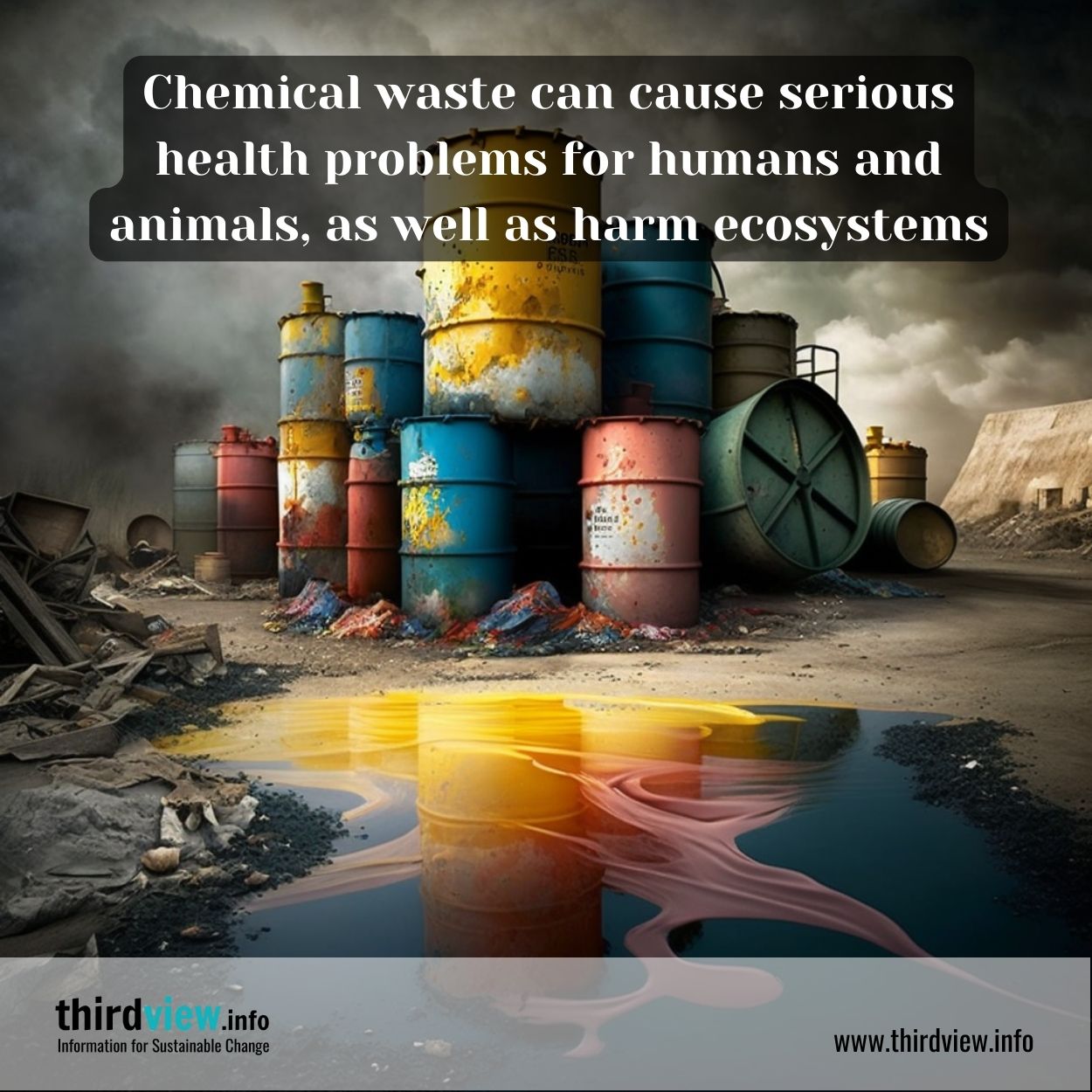Chemical waste is a major environmental issue that needs to be addressed. Too often, improper disposal and leakages occur due to inadequate management of hazardous substances. These substances can be found in many everyday products such as solvents, paints, cleaning supplies, and more.
The Impact of Chemical Waste
Chemical waste can have a devastating impact on the environment. When these materials enter the air, soil, or water supply, they can cause serious health problems for humans and animals alike. Furthermore, chemical runoff can contaminate drinking water sources, leading to increased cases of illnesses like cancer and respiratory diseases. In addition to affecting human health, chemical waste can also harm ecosystems by disrupting species that rely on clean water and air for survival.
It’s important that we create systems to reduce the amount of chemical waste produced and disposed of improperly. Let’s look at some ways this can be done.
Proper Disposal of Chemical Waste
The first step in reducing chemical waste is proper disposal. Many local governments have regulations regarding the disposal of hazardous materials, so it’s important to familiarize yourself with the rules in your area before discarding any chemicals or related items. Usually, these regulations will require you to use special containers or storage units designated for hazardous materials only and follow strict instructions on how they should be disposed of safely. Knowing the laws in your area can help you take proactive steps towards protecting the environment from chemical waste contamination.
Reducing the use of chemicals
Another way to reduce chemical waste is by reducing the amount of chemicals used in everyday products. For example, many companies are now offering eco-friendly alternatives to traditional cleaners and solvents as an alternative to their traditional counterparts which contain a lot harsher chemicals than needed for optimal results. By using these eco-friendly options instead, we can reduce our reliance on harsh chemicals both at home and in industry settings while still getting the desired results without having to worry about excess waste being produced.
Recycling Used Chemicals
Finally, recycling used chemicals is another great way to reduce chemical waste production. This involves taking unused or partially used chemicals from industrial sources and reusing them instead of disposing of them in landfills or other areas where they could potentially contaminate soil or water sources. This process can help prevent further pollution while also reducing costs associated with purchasing new chemicals every time a process needs to be completed again. Furthermore, it helps conserve resources since fewer new resources need to be extracted from nature when existing ones are reused instead.
Chemical waste is a serious environmental concern that must be addressed if we wish to protect our planet from harm caused by improper disposal practices or leaking hazardous materials into our environment due to a lack of safe containment methods. Fortunately, there are strategies that can help us reduce our reliance on excessive amounts of chemical products while still maintaining efficient operations within industry settings as well as at home; these include proper disposal techniques, reducing usage whenever possible, and recycling used chemical products whenever feasible. Reducing chemical waste not only helps protect nature but also reduces costs associated with purchasing new materials every time something needs doing again—so let’s do our part today.


